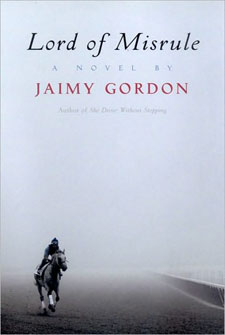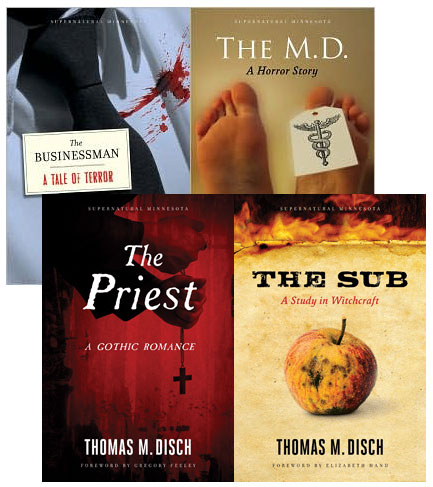Read This: Lord of Misrule

When Jaimy Gordon’s Lord of Misrule was announced as the winning fiction at last week’s National Book Awards, the first reaction in the ballroom was stunned silence (well, except at the tables of Gordon’s publishers). I assume that’s because very few people in that audience had had the opportunity to read the novel—officially, it hadn’t actually come out until two days before the awards ceremony, and even most reviewers hadn’t gotten their hands on advance copies until after the nominees had been named in mid-October. I’d gotten hold of a PDF, so I’d started reading the novel, and I knew it was good, but for technical reasons, it was not a convenient way to read the book all the way through, so it wasn’t until this weekend, with a finished copy in hand, that I finished, and I can assure you: Lord of Misrule is a damn good book and anybody who tells you it doesn’t deserve the National Book Award is somebody whose future literary recommendations you can safely ignore.
(Oh, sure, there’s the popularity contest aspect of analyzing these sorts of literary competitions to consider; heck, either of the other two nominees I’ve read so far also deserved the award, and so did several other books that weren’t even in the running. But saying any of those books could have won doesn’t, at least the way I see it, mean this book shouldn’t have won.)
The flap copy for Lord of Misrule invokes authors like Nathanael West, Eudora Welty, and Damon Runyon—my own take would probably be closer to a mix of Damon Runyon and David Goodis. The story is set at a racetrack and stables in West Virginia, (just this side of the Ohio border), the sort of track where owners bring their run-down horses, the has-beens and the also-rans, aiming to make their money at the claiming races. Gordon quotes Ainslie’s Complete Guide to Thoroughbred Racing to explain the principle of the claiming race:
“When he enters his animal in a race for $5,000 claiming horses, the owner literally puts it up for sale at that price. Any other owner can file a claim before the race and lead the beast away after the running. The original owner collects the horse’s share of the purse, if it earned any, but he loses the horse at a fair price… if it is a $5,000 horse.”
There’s also some opportunity to win some good purses with horses with long odds that run better than anybody else knows to give them credit for, and that’s part of what brings Tommy Hansel and his girlfriend, Maggie Koderer, to Indian Mound Downs. Their continued presence stirs up some long running tensions around the track; Two-Tie, a loan shark who’s been banned from the track but still keeps a hand in the game, has his reasons for keeping an eye on Maggie, while the local big cheese, a trainer named Joe Dale Bigg, develops his own interest in her (and one of her horses). You’ll also want to keep your eye on Medicine Ed, the groom who’s been around for ages, seen everything, and is just about ready to get out (except, of course, there’s no way he’ll ever be able to afford to leave). Gordon shifts nimbly from one perspective to the next, and creates just enough suspense around the four races that form the narrative’s backbone to keep you guessing. (Although there are exciting climaxes on—and off—the track, this novel is arguably more about buildups and letdowns than it is about payoffs.)
Maybe it’s not your standard noir, but if Lord of Misrule hadn’t been published by McPherson & Co., an independent press out of upstate New York, I could easily see it as a paperback original from Hard Case Crime… with a much more “pulp” cover, natch. (It’s sort of a shame Hard Case isn’t doing the paperback, although of course it’s wonderful for Gordon that she’ll have the resources of Vintage behind her, and a deal with Pantheon for the next book, too.) I’m thinking mainly of the atmosphere: not just the fluid boundary between legal and illegal activity, but the pervasive sense of fatalism even when things seem like they’re looking up.
I hear tell that David Milch and Michael Mann are working on a new series for HBO set at a race track; that’s as good an approximation as I can think of for what Jaimy Gordon has achieved here. As I say, there may be novels you’ve read this year you like better, but you can’t deny this is great stuff.
22 November 2010 | read this |
Read This: Thomas Disch’s Supernatural Minnesota

Last week, I had the opportunity to give Tor.com readers a “guided tour” of four horror novels by Thomas M. Disch, originally published between 1984 and 1999 and recently reissued by the University of Minnesota Press—starting with The Businessman: A Tale of Terror and making my way through The M.D.: A Horror Story, The Priest: A Gothic Romance, and The Sub: A Study in Witchcraft. The assignment (well, I volunteered, really) was a pleasure: These are four fantastic novels, very dark but also very funny, and it was interesting to see, reading them one right after the other, how they connected with each other… and to have additional input from Tor.com readers whose comments filled in things that I hadn’t noticed.
One of the aspects of this series that I came to appreciate is that it isn’t really a “series,” at least not in the sense I had expected. The “Supernatural Minnesota” label assigned to the four novels had initially given me the impression that Disch was setting his stories in something like the Castle Rock of Stephen King, with a coherent history spread out over multiple stories. But that’s not quite right: Yes, locations and characters overlap from one novel to another, but I came to realize that even if the same characters showed up in different stories, they weren’t necessarily the same people, even if they seemed awfully similar.
As I wrote in one of the reviews, instead of Castle Rock, it’s a bit more like the London of Michael Moorcock’s “Jerry Cornelius” stories, where the names and places are starting points, but the stories are likely to go off in very different directions. That’s why, when two secondary characters in The Businessman show up to play key secondary roles in The Priest, Disch doesn’t offer any follow-up to the storyline from the first novel. Yes, it would have been a nice in-joke for people who remembered The Businessman, but, heck, that was over a decade ago, and anyway the supernatural parameters he’d set for the first story didn’t jibe with the second one. So you accept Disch’s Minnesota as a consistent environment, but not a “shared world.” And the individual novels are, I think, stronger and more subtle in their workings for that.
You don’t have to take my word for it, though, and I heartily recommend that you buy and read The Businessman, The M.D., The Priest, and The Sub and see how Disch used a deeply caustic and ironic voice, and a keen sense of family drama, to carve out a unique place for himself in late 20th-century horror. (As one of the Tor.com fans and I concluded, these novels had the plotting and character strengths of early Stephen King, without all the narrative flashing lights that let readers know when something important has happened.) You don’t have to read these books in any order, now, so I would recommend starting with either The M.D. or The Priest—the sharpest and most suspenseful of the bunch—and then picking up the other two whenever you get a chance.
14 November 2010 | read this |

 Our Endless and Proper Work is my new book with Belt Publishing about starting (and sticking to) a productive writing practice.
Our Endless and Proper Work is my new book with Belt Publishing about starting (and sticking to) a productive writing practice. 
